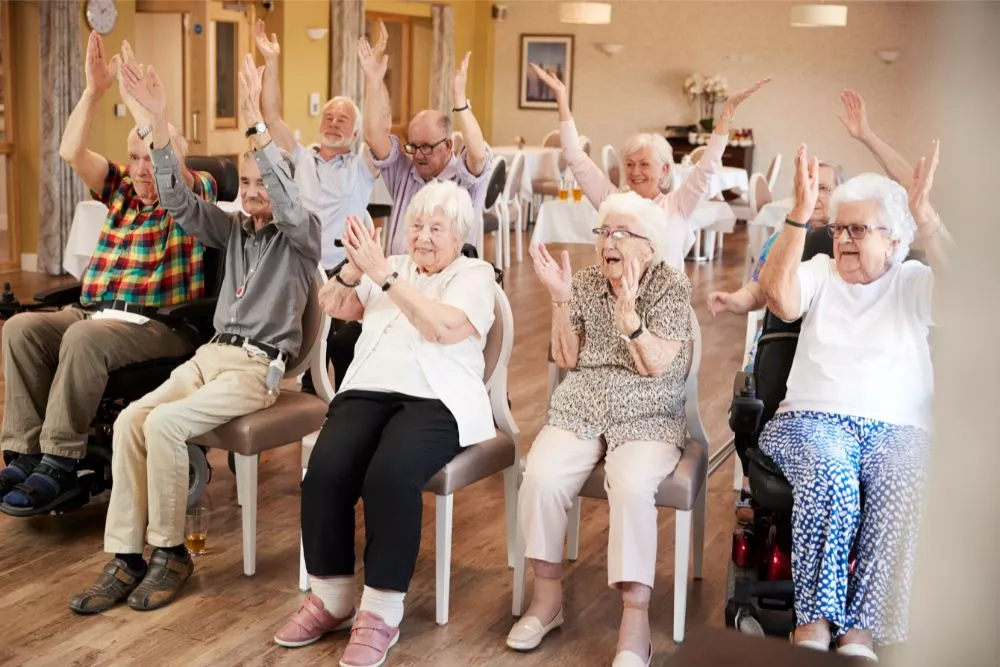Trusted Memory Care communities providing constant support and security.
Assisted Living: a Compassionate Setting for Elders With Memory Obstacles
By giving personalized care and structured routines, these areas not only improve cognitive function but likewise foster emotional links, minimizing seclusion amongst residents. The efficiency of these interventions often hinges on the involvement of households in the treatment procedure, prompting a better examination of how this collective initiative affects outcomes for both citizens and enjoyed ones.
Understanding Memory Obstacles
Recognizing memory difficulties is important for offering efficient treatment to senior citizens encountering cognitive decline. Memory impairments, which can show up as lapse of memory, confusion, or trouble recalling recent events, are usually signs of conditions such as Alzheimer's illness or other kinds of mental deterioration. These difficulties can significantly influence an elderly's capability to carry out daily tasks, keep social relationships, and manage personal security.
Acknowledging the numerous phases of cognitive decline is vital for caretakers and healthcare professionals. Early-stage memory loss might involve light forgetfulness, while mid-stage decline can result in much more pronounced disorientation and complication. In late-stage dementia, individuals might shed the ability to interact successfully, requiring detailed support and understanding from caretakers.
Moreover, memory obstacles can stimulate a series of psychological reactions, including stress, anxiety, and clinical depression. This necessitates a thoughtful method to care that prioritizes the psychological well-being of the individual. Understanding the complexities of memory obstacles enables caretakers to create tailored approaches that enhance interaction, advertise interaction, and offer a feeling of safety. Inevitably, a deep understanding of these difficulties is essential to delivering thoughtful and effective look after elders encountering cognitive decrease.
Advantages of Assisted Living
Helped living offers various benefits for seniors with memory obstacles, offering an encouraging atmosphere that promotes freedom while guaranteeing safety and treatment. One of the primary benefits is the round-the-clock guidance and help offered, which aids alleviate risks connected with memory-related concerns. Assisted Living. This constant assistance permits senior citizens to involve in everyday activities without the fear of crashes or complication
Furthermore, assisted living facilities commonly offer structured routines that can improve cognitive feature and stability. These regimens aid citizens feel more safe and secure and reduce anxiety, as they know what to expect each day. Social communication is an additional significant benefit, as these settings motivate links among residents, promoting emotional wellness and minimizing sensations of isolation.
In addition, assisted living staff are trained to recognize the special needs of seniors with memory challenges, allowing for customized treatment plans that deal with individual choices and needs. This customized technique not just boosts the top quality of care but likewise equips seniors to keep a sense of freedom. On the whole, assisted living functions as a thoughtful solution, stabilizing the requirement for support with the wish for self-reliance in the lives of senior citizens facing memory challenges.
Specialized Treatment Approaches
Executing specialized treatment techniques is vital for properly supporting senior citizens with memory challenges. These individualized approaches focus on enhancing the lifestyle and fostering self-reliance find while dealing with the one-of-a-kind demands of people with cognitive impairments. One fundamental approach is person-centered care, which emphasizes the importance of comprehending each resident's biography, choices, and worths. By tailoring care plans accordingly, team can produce a much more appealing and purposeful environment.
One more important approach entails using cognitive excitement treatments. Tasks created to enhance memory recall, encourage social interaction, and advertise imagination can dramatically affect residents' general well-being. Methods such as memory therapy utilize individual memories to trigger conversation and link, while music treatment can stimulate feelings and memories, providing convenience.

Developing a Helpful Area
(Dementia Care Charlotte)A helpful neighborhood plays a crucial duty in improving the lives of senior citizens with memory difficulties. Such a community fosters an atmosphere of understanding, empathy, and motivation, which is important for people encountering cognitive difficulties. By developing a network of assistance, helped living facilities can substantially improve the high quality of life for homeowners.
Central to a supportive neighborhood is the existence of experienced personnel who are sensitive to the unique requirements of seniors with memory impairments. These experts not only supply vital treatment but additionally engage locals in significant tasks that boost cognitive feature and advertise social interaction. Programs that urge participation in team workouts, arts and crafts, or memory video games can enhance both physical and mental health.
Additionally, a helpful community advertises strong connections amongst locals. Motivating friendships and peer support helps to reduce sensations of seclusion and cultivates a sense of belonging. Normal social events and public dining experiences can further enhance these bonds, producing an atmosphere where seniors really feel valued and comprehended.
Involving Families in Care
Involving households in the treatment process is essential for offering thorough support to elders with memory challenges. Relative often offer as important advocates, supplying insights right into the person's preferences, history, and routines that can boost tailored treatment. By including them in conversations and treatment planning, aided living facilities can create a more all natural technique that reverberates with the homeowner's needs.

Urging family members to join care not just enhances the well-being of the senior but also supplies emotional support to family members. Entailing households in treatment cultivates a sense of community and belonging, making sure that elders really feel attached to their enjoyed ones. Inevitably, a collective approach to care enriches the lives of both homeowners and their families, creating a thoughtful and supportive atmosphere that promotes dignity and regard.
Conclusion
In verdict, aided living serves as a crucial source for elders experiencing memory difficulties, supplying personalized treatment tailored to individual demands. The organized routines and engaging activities advertise cognitive feature and emotional health, promoting a feeling of belonging. Specialized care approaches, such as reminiscence and music treatment, boost communication and connection. By involving families in the care process, assisted living creates a detailed assistance network, inevitably enhancing the lives of homeowners and their loved ones.